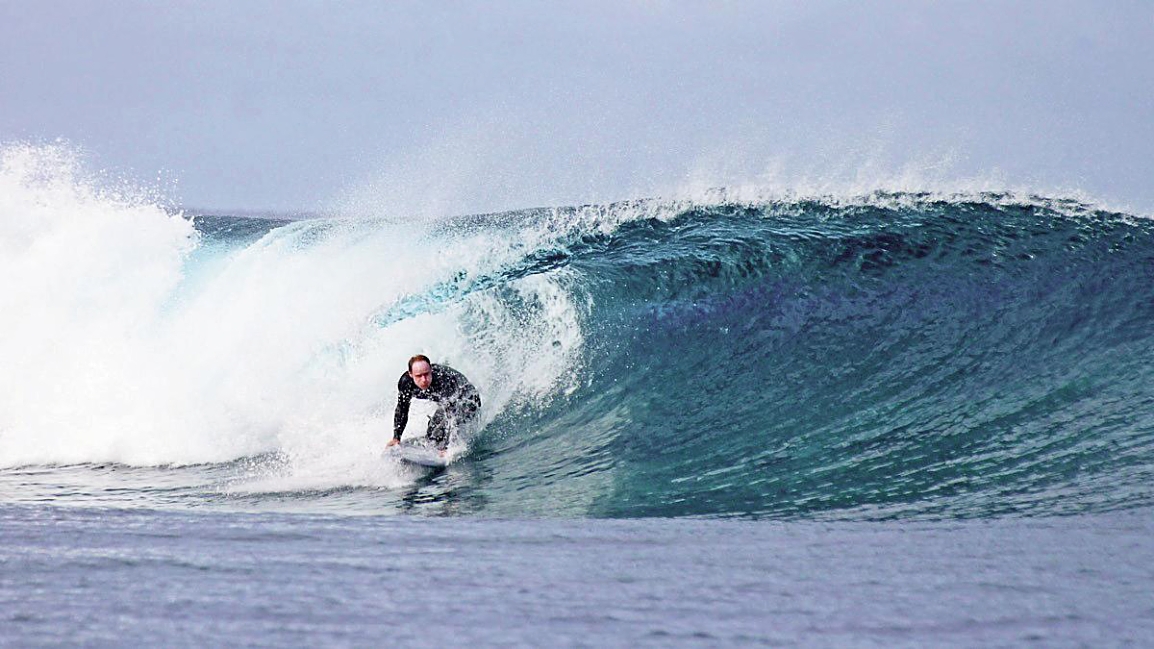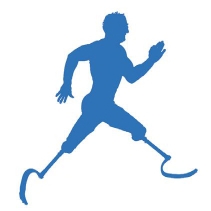
POINT BREAK: Dan surfs in, Indonesia in 2017; "I think the theme to my story is setting goals. Sometimes these goals are long-range, many years into the future, and they're not going to be easy to achieve. But you can start to come up with a process."
loving nature and being outdoors in the woods is probably why I got into cross-country skiing. It felt like this would be an interesting sport. I decided to go to the camp that they invited me to in Montana. I love being in the woods. I love hiking, mountaineering, and climbing mountains. Trail running was a favorite thing. So cross-country skiing quickly became this new way of hiking. I knew now, I would have to do it from a seated position with only my upper body and two poles. That's tough, but you can train. I saw future teammates who were so fast and saw that it was possible. Cross-country skiing; being in the woods, gliding on snow, covering ground under my own energy and power was really exciting. I started to see direction in my life. This is in late 2010 into 2011. I felt like this is what I wanted to do. I didn't have any goals around anything else. I thought "skiing is going to be really good for me".

"Adaptive sports are quite impressive. There are all kinds of opportunities, so I'm not actually limited. Well, I'm limited in some ways, but I'm not necessarily limited in the kinds of activities. I've got to do it a different way now."
FS: And you excelled.
DC: I love it and I think the performance comes later. But, at a fundamental level, I just like doing it.
FS: In addition to your story, would you share some of what you speak about that seems to really help people? Could you summarize a little for our audience about overcoming obstacles, tips for facing adversity or an unexpected sudden change in their life?
DC: I think first it's acknowledging that these things happen. I remember in the hospital people telling me, "Recovery goes three steps forward, two steps back." In moments of frustration, I was
thinking, “Even if I’m taking three steps forward, it feels like 30 steps back.” But, regardless of where you are, what your experience is, what your past has been like, when you look forward, there are going to be additional challenges and obstacles that are going to come your way. I think it’s acknowledging this, and recognizing that a lot of times these setbacks are outside of your control. Maybe you can influence a couple things here and there, but a lot of times you can’t control anything. You can’t control the timing, duration, or the magnitude of the challenge or setback. How you are going to respond becomes something that you can control. Maybe not right away or how you first look at it, because we often have an instinctive response. I do think in the long run, you can control how you respond to it. I had days where this major setback I had, was really tough, and I was in a low spot. But ultimately, in the long run, I could control this response. Some days, I’m not totally there in my head, but by and large, I can control how I’m going to respond, and end up living the life that I want to live, and get through this.
I think it’s acknowledging that these things happen and then taking some ownership, that you can control: how you respond, your reaction, your attitude, and your mindset. That can be self-empowering and you hold on to that. Set goals beyond the challenge. Set some goals that are well into the challenge and far, and some that are shorter.
The most powerful goals, I have found, are inside you. They are aligned with who you are and you can't force these things. You can't think because so-and-so is saying this should be a path that